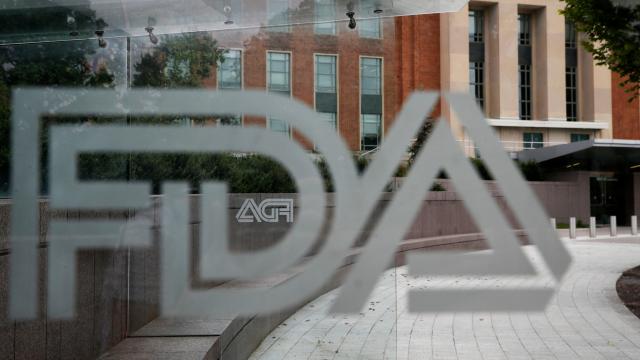The United States’ Food and Drug Administration has been less aggressive about going after companies that could be endangering the public’s health since Donald Trump took office, according to a new investigative report out Wednesday. The report reveals that the agency has drastically slowed down its use of warning letters and legal injunctions as a means of enforcement over the first two years of the Trump administration.
The report, published in Science by journalist Charles Piller, relies on publicly available data from the agency.
Between the date of Trump’s inauguration in January 2017 to May 22 of this year, Piller found that the agency had issued 1033 warning letters, a substantial drop from the 1532 letters sent by the FDA during the most recent and similar time period of the Obama administration. And compared to the first two years of Obama’s first term beginning in 2008, the agency under Trump had sent about half as many letters.
Warning letters are one of the key tools used by the FDA to keep U.S. companies in line. They fall on the rung below recalls or legal injunctions to stop them from producing or selling potentially dangerous products. But injunctions, which need to be carried out with the cooperation of the Department of Justice, have also become less common in the Trump era.
“Those who think the Trump administration has not succeeded in its deregulatory efforts ought to look at these data,” Peter Lurie, a former FDA official who worked in both the Obama and (briefly) Trump administration and is now the current president of the Center for Science in the Public Interest, a Washington, D.C., advocacy group, told Science. “Industry may well take the message from this that the cop is not on the beat as often.”
The findings add some bite to the long-standing accusation that Trump’s initial pick to run the FDA, Scott Gottlieb, was chosen with the aim of making things easier for industry. Prior to abruptly leaving the FDA this March, Gottlieb had been considered a generally effective steward of the agency, even going so far as to pick a sustained fight with electronic cigarette makers over their products becoming wildly popular with the teens.
Yet, according to Piller’s report, the FDA’s Center for Tobacco Products also issued fewer warnings to tobacco companies, including those who manufacture or sell vaping products, than it did under Obama. Gottlieb also delayed the implementation of harsher regulations on the e-cigarette industry to 2022, which was only recently changed to 2021 (Gottlieb did later publicly regret his initial hands-off approach).
“We were pretty aggressive,” Gottlieb, who recently joined the pharmaceutical company Pfizer’s board of directors, told Science in an email. “I don’t think you can paint us with a political narrative – that just because we were a Republican administration, somehow we must have ratcheted down enforcement activity. We didn’t.”
Gottlieb is hardly the only former major FDA official to join the industry soon after leaving, which is another problem onto itself. And in some ways, the trend of less FDA enforcement isn’t wholly endemic to Trump either.
A study just last year found that the agency had pushed for fewer recalls of tainted supplements containing unapproved drugs during Obama’s second term than it did during his first term.
And there was one exception to the downward trend. Warning letters sent by the FDA’s Center for Drug Evaluation and Research, which oversees the safety of drugs on the market, were more common under Trump. These letters often went after opioid drug makers, perhaps reflecting the government’s focus on trying to reduce the overuse of prescription opioids.
At the same time, the agency under Trump has also been criticised for unnecessarily approving new opioid painkillers with no clear benefit over existing options.
The FDA, for its part, contends it’s still going after the bad guys as much as before, just in different ways.
“Sometimes the actions we take are visible, like warning letters (or) recalls… At other times, our actions to protect consumers are less discernible, but equally vital,” the agency said in a written statement to Science.
The current (and mercifully normal) acting head of the FDA, Ned Sharpless, has pledged to not stray far from Gottlieb’s vision for the agency, promising to “continue our important and successful work to increase competition and reign in prescription drug costs through advances in our generic drug and biosimilars programs,” in a speech to staffers this April, according to Endpoints News.
